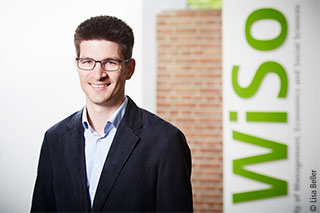We are pleased to announce that WiSo Professor Clemens Kroneberg has been awarded this year’s John G. Diefenbaker Award by the Canada Council for the Arts. As stated in the guidelines, "The John G. Diefenbaker Award enables distinguished German scholars in the social sciences or humanities to conduct research in Canada" and "is open to German scholars who have demonstrated outstanding ability, especially through a substantial publication record over several years."
The award is sponsored by the Canadian government. Like its German counterpart, the Konrad Adenauer Prize, the John G. Diefenbaker Award is intended to promote exchange between the academic communities of Canada and Germany. Professor Kroneberg was nominated by the Department of Sociology at McGill University, where he will spend several months to collaborate on a research project with Professor Thomas Soehl, the Canada Research Chair in International Migration.
Professor Kroneberg's research project examines how social contexts shape youth violence in ethnically diverse societies. Given the heated public and political discussion on the alleged links between immigration and crime, social science research is crucial to ground this debate in solid evidence. ‘With the support of the John G. Diefenbaker Award, I hope to contribute to a more nuanced and informed public discourse,’ says Clemens Kroneberg. This goal has already guided his previous work, which showed that in the school context, physical aggression across ethnic lines and the ethnic-racial labelling of friendship cliques occurs much less frequently than commonly assumed.
Clemens Kroneberg is a professor of Sociology at the Faculty of Management, Economics and Social Sciences of the University of Cologne. Before taking up this position in 2013, he studied in Heidelberg and Mannheim, Germany, where he received a PhD in social sciences. He is a Fellow of the European Academy of Sociology, Faculty Member of the International Max Planck Research School on the Social and Political Constitution of the Economy, Research Affiliate of the Leibniz Institute for Educational Trajectories, and a member of the Cluster of Excellence “ECONtribute: Markets & Public Policy”. His research focuses on ethnic diversity and social boundaries, crime and delinquency, action theory, social networks and the methodology of the social sciences.
